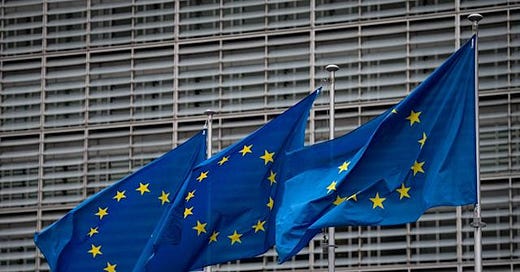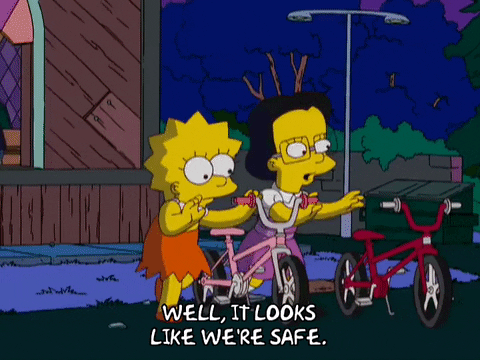Hey 👋
Hope you’re having a great week.
Welcome to the mesha tribe—a biweekly newsletter by mesha, an exclusive social community that lets you chat with friends, discover stocks and participate in challenges all on one platform.
Sounds good? Sign up below 👇
Awesome. Let’s go!
The Big Story
The European Union (EU) passed a historic regulatory framework for governing crypto assets.
The European Parliament’s Committee on Economic and Monetary Affairs (ECON) voted 31-4 in favour with 23 abstentions on a new draft of the much-anticipated Markets in Crypto Assets Regulation (MiCA), a legislative package introduced in 2020 that aims to coordinate the EU's regulatory approach to the crypto industry.
Some of the key provisions agreed by the committee for those issuing and trading crypto assets include transparency, disclosure, authorisation, supervision of transactions, and consumer protection—similar to President Biden's latest crypto executive order in the US. The new framework will also bolster financial stability and market integrity by regulating public offers of crypto-assets.
"Finally, the agreed text includes measures against market manipulation and to prevent money laundering, terrorist financing and other criminal activities," an official statement read.
On Monday, the committee had voted 30-23 to quash an earlier version of the legislation that included explicit language that could’ve banned Bitcoin, Ether, and other similar cryptocurrencies. Dubbed "de facto Bitcoin ban," the rule had sought to limit the use of proof-of-work, an energy-intensive computing process used to mint tokens and record transactions, citing energy consumption concerns.
The provision received much criticism from the crypto community and EU parliamentarians alike, with some even urging citizens to call their parliamentarians to oppose the legislation.

While the ECON rejected the proposal, they called for an alternate legislative rule “with a view to including in the EU sustainable finance taxonomy any crypto asset mining activities that contribute substantially to climate change mitigation and adaptation” to be presented by January 2025.
Along with crypto, the members of the European Parliament also called on the committee to work on legislation that addresses other industries (e.g. the video games and entertainment industry, data centres, etc) that use unrenewable energy resources.
PoW mining and emissions
The proof-of-work mechanism has come under constant scrutiny from regulators, environmentalists, and lawmakers all around the globe over its energy consumption troubles. According to Cambridge Bitcoin Energy Consumption Index, Bitcoin consumes more electricity annually than most countries.
And while energy consumption isn't necessarily equivalent to carbon emission, it depends on the precise energy mix—a combination of different energy sources used to mine Bitcoins. Today, a large portion of that electricity consumption comes from burning fossil fuels like coal, which hugely contributes to the amount of greenhouse gases released into the atmosphere. This is precisely why countries like China banned cryptocurrencies last year.
That said, the crypto community has been actively seeking out new electricity sources to make mining more sustainable and environmentally friendly. For years, the Ethereum network has planned—and postponed—to move from proof-of-work to proof-of-stake, a different consensus mechanism that requires less energy to prove trustworthiness. Although such a switch is possible for Bitcoin too, it's unlikely as the entire network would have to dump expensive hardware and incur huge losses.
What's next?
As the MiCA legislation moves to other EU governing bodies for further negotiations, some EU members—mainly Sweden—have raised concerns about energy being funnelled for mining cryptocurrencies instead of public use. While its 27 member nations have decided not to ban the proof-of-work mechanism, the EU still has to deal with an ongoing energy crisis, worsened by Russia's invasion of Ukraine. Although the bloc has announced plans to reduce Russian natural gas dependency, its implementation is going to take some time.
Share what you learn 🤝
If you found this newsletter insightful, share it with your friends and colleagues and let us know what you think. Once again, thank you for reading.
We, at Mesha, believe in democratizing finance. Join us and be a part of a community that helps you to take your net worth #ToTheMoon🚀







